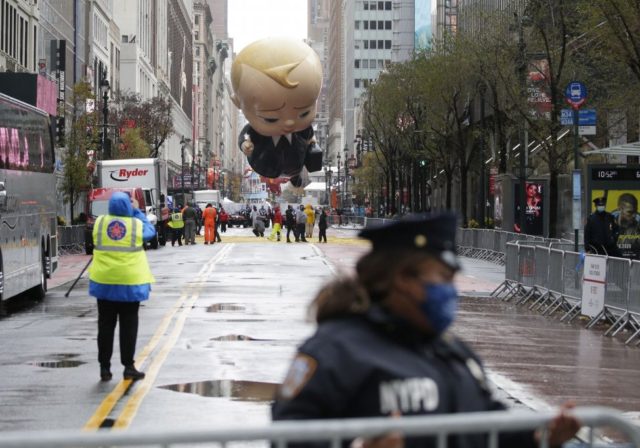Nov. 27 (UPI) — The massive shopping crowds that have traditionally followed the day after Thanksgiving were missing Friday as businesses across the country made changes to adapt to the coronavirus pandemic, which has made this Black Friday different from any other.
Large retailers like Target and Walmart had game plans in place to limit the number of customers entering their stores as the coronavirus resurged in many communities around the country. They spread out discount sales usually reserved for Black Friday through the month to help discourage long lines.
The measure appeared to have worked at the usually busy Walmart in the Miami suburb of Cooper City, where a small line of people waited for the store to open Friday morning after it had closed for Thanksgiving. The line quickly disappeared once the store opened its doors.
Retailers are hoping those moves and a significant boost in online shopping will make the holiday season successful. The National Retail Federation said it anticipates holiday sales in 2020 will jump 3.6% to 5.2% from 2019.
“We know this holiday season will be unlike any other, and retailers have planned ahead by investing billions of dollars to ensure the health and safety of their employees and customers,” NRF President and CEO Matthew Shay said this week in a statement.
“Consumers have shown they are excited about the holidays and are willing to spend on gifts that lift the spirits of family and friends after such a challenging year,” Shay said.
Only a handful of people showed up at the Academy department store in Houston but nothing like the lines that typically show up there on Black Friday to nab gaming consoles and other entertainment items.
“I’m happy the line isn’t as big,” one shopper said. “That means I can get more stuff. I came out here to get a few TVs, and hopefully, I can get a PS5.”
Even smaller stores are taking coronavirus restrictions seriously. Abt Electronics in suburban Chicago will check the temperatures of customers at the door and have up to 30 parking spaces reserved for pickup orders.
“I don’t think we’ll have to tell people to wait outside,” owner Mike Abt said. “But you know, that’s a potential and we’ve never had to do that ever in the past. Everyone really wants to make your store look like it’s less crowded, so we’re keeping employees real far away we’re getting people in and out as soon as possible if they want to come in.”
While the major retailers can weather the smaller crowds on Black Friday, D’Cher Whitaker said her small Chicago-based boutique Love Peridot needs the large crowds to help it rebound from the down spring and summer because of COVID-19 restrictions.
“Everything is at stake,” Whitaker said. “If you don’t shop small, our families are at stake. If you don’t shop with us, we may not be here next year, so it’s very important.”
Black Friday proved mixed overseas. Non-essential retailers remained closed in Britain, slowing shopping markedly, with Barclaycard Payments reporting a 13.2% decrease in payment volume compared with 2019’s Black Friday.
In Israel, the government allowed additional malls to open to accommodate shoppers. Most malls had been closed in the country since March because of the coronavirus. In a lottery held on Thursday, nine malls were selected to open along with the six that had previously been announced, which filled with customers Friday.
Guam, one of the first countries to participate in Black Friday shopping, reported that shoppers mostly followed social distancing guidelines and crowds were smaller than in the past. A struggling economy, leaving customers with less money to spend, has also affected the shoppers on the street there.

COMMENTS
Please let us know if you're having issues with commenting.